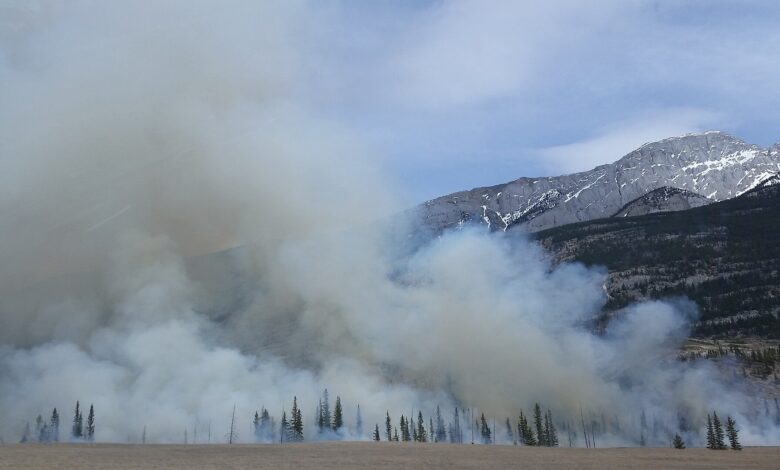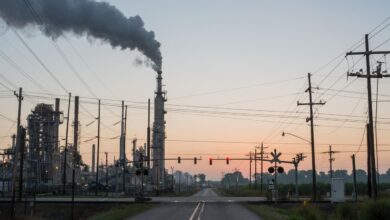Exposure to wildfire smoke linked to worsening mental health conditions

Wildfires are not just a threat to physical health – a new study led by researchers at Harvard T.H. Chan School of Public Health has found a concerning link between exposure to fine particulate air pollution (PM2.5) from wildfire smoke and increased visits to emergency departments for mental health conditions. The study, published in JAMA Network Open, sheds light on the direct impact of wildfire-specific PM2.5 on mental health.
According to the study’s corresponding author, Kari Nadeau, the findings highlight the critical importance of addressing mental health concerns in relation to wildfire smoke. Nadeau emphasizes that smoke from wildfires can exacerbate conditions such as depression, anxiety, and mood disorders, in addition to the emotional trauma caused by the wildfires themselves.
This groundbreaking study is the first to isolate the short-term effects of wildfire-specific PM2.5 on mental health, providing valuable insights into the impact of this type of air pollution. While previous research has explored the influence of PM2.5 on mental health outcomes, the focus on wildfire-specific PM2.5 sets this study apart.
The researchers analyzed data from California during the state’s severe wildfire season in 2020, correlating wildfire-specific PM2.5 levels with emergency department visits for mental health conditions. The results showed a significant increase in mental health ED visits following exposure to wildfire smoke, particularly for conditions like depression, anxiety, and mood-affective disorders.
Notably, certain demographics were more vulnerable to the effects of wildfire smoke on mental health. Women, children, young adults, Black and Hispanic individuals, and Medicaid enrollees showed the highest risk of experiencing mental health ED visits due to exposure to wildfire-specific PM2.5. This disparity underscores the need to address health inequities exacerbated by wildfire smoke exposure.
Lead author YounSoo Jung emphasized the urgency of ensuring access to mental health care during wildfire seasons, especially for the most vulnerable populations. As wildfires become more frequent and severe due to climate change, the impact on mental health is expected to escalate, making proactive mental health support essential.
The study’s findings have significant implications for public health policy and underscore the importance of addressing the mental health impacts of wildfire smoke. By prioritizing mental health care during wildfire events and focusing on vulnerable populations, we can work towards mitigating the adverse effects of wildfire smoke on mental well-being.
For more information, the study titled “PM2.5 from 2020 California Wildfires and Mental Health-Related Emergency Department Visits” can be accessed in JAMA Network Open. This research highlights the critical link between wildfire smoke exposure and worsening mental health conditions, urging proactive measures to protect public health.
This study was conducted by the Harvard T.H. Chan School of Public Health, reaffirming the institution’s commitment to advancing public health research and addressing pressing health challenges. For further details and access to the study, visit the Harvard T.H. Chan School of Public Health website.





